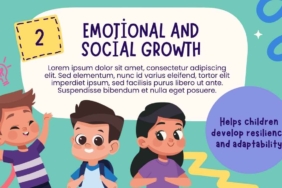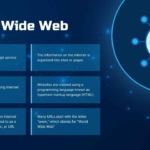As we delve deeper into the **21st century**, the specter of **climate change** looms larger than ever, influencing ecosystems, economies, and societies worldwide. With rising temperatures, extreme weather events, and shifting agricultural patterns, understanding the implications of climate change is paramount for shaping our future.
What is Climate Change?
Climate change refers to significant alterations in global temperatures and weather patterns over time. While natural processes have contributed to these changes historically, human activities, particularly the burning of fossil fuels, have accelerated this phenomenon. The **Intergovernmental Panel on Climate Change (IPCC)** has highlighted that human-induced climate change has already increased temperatures by approximately **1.1 degrees Celsius** since the late 19th century.
Why is Climate Change Important?
The importance of addressing climate change cannot be overstated. Its impacts ripple through **natural** and **human systems**, leading to:
- Increased severity and frequency of natural disasters such as hurricanes, floods, and wildfires.
- Shifts in biodiversity, with numerous species facing extinction.
- Disruption of food and water supplies, as agricultural practices must adapt to new climate realities.
- Threats to human health, including heat-related illnesses and respiratory issues from poor air quality.
When Will the Effects Be Most Pronounced?
Experts predict that many of the severe effects of climate change will become increasingly pronounced within the next few decades. The choices we make in the **2020s** and **2030s** will determine how climate change progresses, with potential milestones expected by **2050** and **2100** regarding sea level rise and global temperature increases.
Where Will Climate Change Impact Most?
Climate change will affect every corner of the globe; however, certain regions are more vulnerable:
- **Small Island Developing States (SIDS)** face existential threats due to rising sea levels.
- **Polar regions** are warming twice as fast as the global average, impacting native wildlife and communities.
- **Sub-Saharan Africa** is likely to suffer from reduced agricultural output and increased food insecurity.
Who is Most Affected by Climate Change?
The impacts of climate change disproportionately affect marginalized communities, particularly in developing nations. Low-income households often lack the resources to adapt, while indigenous populations suffer from loss of traditional lands and cultural identity. Women are also particularly vulnerable as they may be tasked with securing water, food, and shelter amidst increasingly unstable environments.
How Can We Combat Climate Change?
Addressing climate change requires a **multifaceted approach**, including:
- Switching to renewable energy sources such as solar, wind, and hydroelectric.
- Implementing sustainable agricultural practices that reduce emissions and enhance resilience.
- Encouraging individual actions, such as reducing waste and increasing energy efficiency.
| Climate Change Mitigation Strategies |
|---|
| Renewable Energy Adoption |
| Sustainable Agriculture |
| Energy Efficiency Improvements |
| Reforestation Efforts |
Conclusion: Preparing for a Changing Climate
As the impacts of climate change become increasingly evident, it is crucial for individuals, communities, and policymakers to take proactive steps in **mitigation** and **adaptation**. By understanding how climate change will shape our future, we can work collectively to tackle this pressing global challenge. It is imperative that we act now to preserve a livable planet for future generations.














